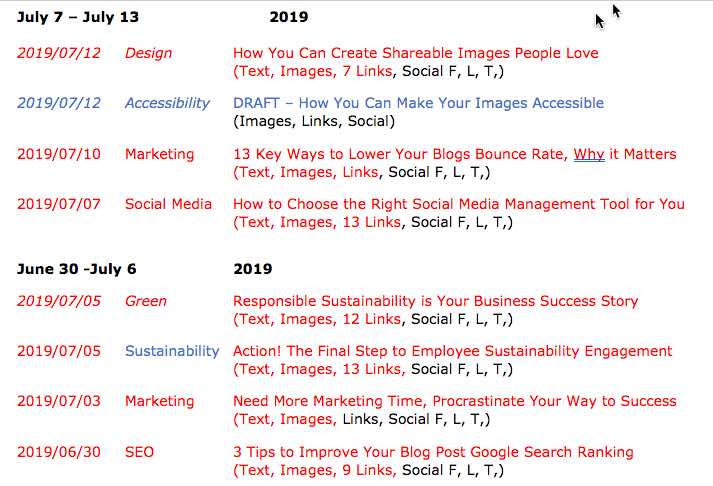
Nine Ways I Avoid Blogger Burnout and Stay Inspired *
What is Blogger Burnout?
I’m sure that most bloggers start off with a huge burst of energy and excitement. I get a personal rush from putting my thoughts down and releasing them for the world to see. For me blogging has come from learning so many new things since deciding to begin the Better Business Alliance.

The Better Business Alliance was born from seeing how small business is affected by the growth of the digital world that we live in. There are unique gifts and challenges facing every small business owner today as a direct result of the new connected world that surrounds us.
The Better Business Alliance blog gives me a platform to share with others the new skills and information that I am learning every day. My hope is that others can benefit from the content that I am sharing and learn from my experiences.
During the past year while writing my blog posts I have felt what I’m sure all bloggers feel. I experienced my first bout of “blogger burnout” and understand how it can stop you in your tracks.
Although I have only been blogging for about a year, I have set my goals high. In addition to my Better Business Alliance blog, I soon felt the need to blog about two other topics that interest me. Accessibility and Sustainability are two topics that matter, and are important for all of our futures.
Because of my hectic blogging schedule I understand how difficult it can be to maintain focus and complete my posts on time. So today I want to share nine ways that I use to stay fresh and inspired with my blogging. Hopefully these will help you spot burnout coming, and head it off before it hits you with full force.
But before we get into them let’s look at some causes of blogger burnout.
Why Does Blogger Burnout Happen?
Blogger burnout can materialise in different forms and for different reasons.
- You may think you have run out of topic ideas or said everything there is to say.
- You may have become disillusioned with your topic, your niche, or blogging in general.
- Despite working really hard on your blog, you may not think it’s paying off.
- You may not be reaching the goals you set for yourself.
- You may feel overworked and worn out.
- Your blog may not focus on the reason you started it.
- You may be overwhelmed by everything you need to do to keep your blog running.
Whatever the cause of your burnout, here are some practical things you can do to tackle it.
Make Your Goals and Expectations Realistic
You need to fit your blogging in around the rest of your life. Unfortunately, some bloggers fail to take this into account.
You might believe that you must post every day or every week. For many bloggers that’s just not feasible to do. Once, twice, or three times a week would work for them and fit into their lives much better.
You have to understand that it’s okay to be flexible with your posting schedule. If you don’t post as often one week, or even take a full week off, the world won’t end.

Be realistic with your expectations and your goals.
You may have dreamed of having millions of readers and making lots of money. However I suspect you now know that achieving that kind of success with a blog can take years. And you have to produce useful content the entire time.
Establish Your Own Blogging Groove
Personally I find blogging easiest when I have established a rhythm to my week. That means having specific times when I brainstorm ideas, write my content, and edit my content.

I keep my blogging calendar in a word document, but you don’t need to be that structured. Do what works for you. I usually write in the morning and being a night owl, I settle in and do my editing in the evening.
What schedule could you create for your blogging? Decide what you need to do, and how it fits into your schedule. You need to establish habits that work for you and try to get into your own blogging groove.
Identify Your Problem Areas
WIth blogger burnout, there’s often a particular area where you’re getting stuck. It might be coming up with blog topics. It might be sitting down and editing. Sometimes that’s mine. Or you might feel disillusioned about your blogging.
Comparing yourself to other bloggers you might become frustrated that your blog isn’t yet as successful as theirs’. Maybe you just need a break from blogging, and need some time off to rest and recharge.

I have experienced blogger’s block and feel that there are three places where you can get stuck:
- coming up with your blog content ideas
- writing your content
- completing your content.
These are all different types of blogger’s block. If you’re feeling burnt out with creating content, you might want to chat with someone about your feelings of burnout.
You Have to Take Care of Yourself
You have to stay healthy if you hope to sustain a healthy blog over the long term.
One of the biggest reasons bloggers burn out is they’re not in a healthy place. It might be their physical health, their mental health, a lack of sleep, or something else affecting their performance.
After starting my blogging I soon realized that I wasn’t taking care of myself. My lack of exercise took it’s toll on my body, my energy and my creativity.

I quickly realized that I had to do something. Here are a couple of quick tips.
- Build exercise into your routine. It might be fitting a walk into your day, or simply getting up from your desk a couple of times a day. I started hitting the gym three times a week.
- Look at your diet. Are there changes that you could make? You might be thinking about eating more healthy, nutritious food and less junk.
Take Regular Breaks to Recharge
Taking a break, resting or sleeping might seem unproductive. But they can help your blog in so many ways. The better you rest, the better you work.

It can help you to think about getting rest and time away from your blog.
- Daily: I work on my blog during business hours, normally writing in the morning. and afternoon. Three mornings a week, I hit the gym to help clear my mind.
- Weekly: Weekends are for unwinding and rejuvenating. I may do a couple of really short bursts on a Saturday morning or a Sunday evening. Having the time to relax really important.
- Yearly: I schedule time off during the year to spend with my family. Usually a couple of week long breaks and a couple of long weekends.
It’s important to unplug regularly so you’re not constantly obsessing about your blog. By focusing on leisure, your blogging will be better. Other areas of your life will also benefit such as your friendships and your relationship with your family.
Build and Nurture Your Relationships
Taking breaks with family and friends is important for your relationships. Working online a lot of our interactions tend to be virtual.
While your online relationships may be positive, it’s important for you to have grounded, real-life relationships as well.

Working online can open you to some pretty vicious attacks from strangers. While your online friends may help you through those times, it’s your real-life friends that will provide the real support needed.
Online relationships matter too, because your friends and family may not understand what you’re going through as a blogger. One of the best ways to solidify online relationships is to attend blogging events whenever you can. I’m a member of the local Bloggers Meetup group. Having face to face meetings with other bloggers is a great way to strengthen your relationships with them.
Make Inspiration and Learning Part of Your Day
One of the most powerful things I do is schedule at least 5–10 minutes a day to watch or listen to something inspiring. With the growth of technology, I now tend to listen to podcasts.
I try to include two types of podcasts. Ones that inspire me, and ones that teach me something. Both give you energy in different ways and are equally important.
What you listen to or watch doesn’t always need to be about blogging or your blog’s topic. You get your inspiration from wildlife documentaries, and the beauty of the animal kingdom.
You don’t have to spend a lot of time for them. Spending just ten minutes watching a video or listening to a podcast can help you feel inspired, and more knowledgeable.
Engage, Pivot, and Evolve
I am easily bored by the mundane. When I’m bored I become more curious. I prefer to explore and search for new ways to approach everyday problems. Many would describe this as thinking outside the box.
Over the years I’ve learned that I need to look for new ways to do things.
One of the great things about blogging is it’s always changing. There’s always something new to try, which can be distracting. However I think it’s important to bring play and experimentation into what we do.
Another way to pivot and evolve is to add categories to your blog. You could also try:
- Running a new series of posts
- Monetizing your blog, or launching a new product
- Changing the design of your blog, whether it’s getting a new logo or changing the colours
As well as energizing you, these pivots and changes keep your blog engaging and fresh for your readers.
Make Your Blogging Matter
This is probably the most important thing you can do to avoid or get through burnout. You need to select blog topics that matter. Both to you and to others.
If your blogging is about something that you have a genuine interest in and believe in, you’ll find it to be much easier to keep your momentum. Of course, it will still get tough sometimes.
However, the fact you’re making other people’s lives better can give you the energy and inspiration to get through it. Emails and comments from readers have a tangible and positive impact on maintaining your focus.
If you’re experiencing blogger burnout, there’s nothing wrong with taking a break. Don’t be afraid to give yourself some time off. Be sure you start blogging again when you return.
You might consider bringing in guest posters to cover the time you’re way. Or you might just tell your readers that you’re taking a bit of time off. They’re usually understanding about the need for rest and recovery.
While you’re on your break, you might want to think about implementing at least one or two of the points we’ve covered:
- Make your expectations and goals realistic
- Establish your own blogging grove
- Identify your problem areas
- You have to take care of yourself
- Take regular breaks to recharge
- Build and nurture your relationships
- Make inspiration and learning part of your day
- Engage, pivot, and evolve
- Make your blogging matter
If you’re going through a tough time, please take care of yourself. Feel free to reach out for help and support in the comments.





